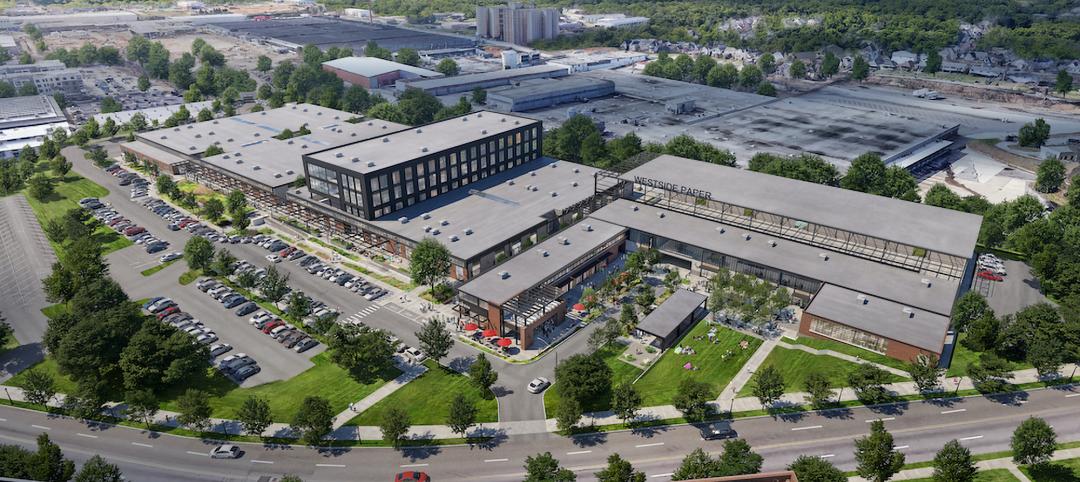After three years of slow but continuing improvement, architecture and engineering (A&E) firms are healthier now than at any time since the start of the great recession, according to initial findings of the 2013 Architectural and Engineering Study from DiCicco, Gulman & Company LLP (DGC), a CPA and business consulting firm specializing in the A&E profession.
This soon-to-be released survey benchmarks financial performance and other key indicators based on input from over 40 architecture and engineering firms headquartered in the greater Boston area. The study, conducted annually, contains some of the most comprehensive financial data available on the A&E industry.
“Most firms are doing better than they did in 2011,” says Chad DaGraca, a partner in DCG’s A&E practice. While the report shows a 2.6% increase in profits, perhaps more significant is the fact that firms also increased hiring, made investments in infrastructure and saw continued growth in the volume of their business. “These are signs of a true recovery,” DaGraca says.
One reason for the improvement is renewed activity in the private sector. Many companies—including a good number of the Fortune 500—have been loosening their purse strings and investing in new buildings and facilities. “Companies are spending money because they have more confidence in the overall direction of the economy,” he says.
At the same time, the residential housing market has stabilized and is improving in certain markets across the country. With more work to be found in the housing sector, firms that were forced to bid on other types of projects are increasingly returning to their normal line of work.
While competition remains stiff, there are clear signs of easing within the industry. The average billing multiple, for example, rose again in 2012, increasing to 3.12 from 3.08 in 2011. “The pricing pressure in the marketplace is loosening up,” DaGraca says. “Most firms would still characterize the competition as significant, but there is certainly more work to be had. This will also shift more and more emphasis towards focusing on best practices in the area of project management; as firms begin to grow again, they will need to ensure their projects are profitable in this competitive environment.”
Likewise, the utilization rate, which is the percentage of time worked on billable projects, rose slightly to 65.3%, putting it above 65% for the first time since the recession.
While the survey focuses on 2012 data, responses indicate that 2013 will likely show continued improvement, DaGraca says. Another indication of continuing industry growth, he says, is the AIA's Architectural Billings Index, which has reported growth in design firm billings for eight of the last nine months. “We are still not back to pre-2008 levels, but we are moving in the right direction, says Dave Sullivan, partner in DGC’s A&E practice.”
As A&E firms gain strength, Sullivan expects to see many firms tackling long-range strategic initiatives such as succession planning, the impact of industry consolidation, and staff development. Staffing, for example, is getting increased attention as firms try to make sure that they have people with the right skill sets in the right positions. Employees are also beginning to look for new opportunities as the job market eases. Turnover has been relatively low over the past two years, but that will change in 2013, so firms need to be prepared for those changes and have a plan in place to attract and retain good people.
“Industry consolidation and succession planning will continue to be among the leading challenges for the industry in 2013”, says Sullivan. “The recession has put more pressure on the demographic shift in firm ownership created as the baby boomer generation heads to retirement. Firm owners need to plan early to execute a successful succession plan and to achieve their longer term ownership goals for the firm. This is not an easy task as many firms will attest to.” The DGC 2013 Architectural and Engineering Study, which will be available this summer, highlights the firm’s expertise and in-depth knowledge of the architecture and engineering professions. DGC experts analyze financial data from prominent firms in the Greater Boston region, focusing on operational performance metrics and identifying emerging trends.
About DiCicco, Gulman & Company LLP
DiCicco, Gulman & Company LLP (DGC) is a CPA and business consulting firm specializing in A&E firms, as well as private clients, real estate and commercial business. As an independent member firm of Moore Stephens North America, DGC has access to a global network of technical expertise and best practices, which result in elevated performance standards. For more information please visit www.dgccpa.com or call 781-937-5320.
Related Stories
Industry Research | Jan 23, 2024
Leading economists forecast 4% growth in construction spending for nonresidential buildings in 2024
Spending on nonresidential buildings will see a modest 4% increase in 2024, after increasing by more than 20% last year according to The American Institute of Architects’ latest Consensus Construction Forecast. The pace will slow to just over 1% growth in 2025, a marked difference from the strong performance in 2023.
Giants 400 | Jan 23, 2024
Top 110 Medical Office Building Architecture Firms for 2023
SmithGroup, CannonDesign, E4H Environments for Health Architecture, and Perkins Eastman top BD+C's ranking of the nation's largest medical office building architecture and architecture engineering (AE) firms for 2023, as reported in the 2023 Giants 400 Report.
Giants 400 | Jan 22, 2024
Top 100 Outpatient Facility Architecture Firms for 2023
HDR, CannonDesign, Stantec, Perkins&Will, and ZGF top BD+C's ranking of the nation's largest outpatient facility architecture and architecture engineering (AE) firms for 2023, as reported in the 2023 Giants 400 Report. Note: This ranking includes design revenue for work related to outpatient medical buildings, including cancer centers, heart centers, urgent care facilities, and other medical centers.
Construction Costs | Jan 22, 2024
Construction material prices continue to normalize despite ongoing challenges
Gordian’s most recent Quarterly Construction Cost Insights Report for Q4 2023 describes an industry still attempting to recover from the impact of COVID. This was complicated by inflation, weather, and geopolitical factors that resulted in widespread pricing adjustments throughout the construction materials industries.
Transit Facilities | Jan 22, 2024
Top 40 Transit Facility Architecture Firms for 2023
Perkins&Will, HDR, Gensler, Skidmore, Owings & Merrill, and HNTB top BD+C's ranking of the nation's largest transit facility architecture and architecture engineering (AE) firms for 2023, as reported in the 2023 Giants 400 Report. Note: This ranking includes design revenue for work related to bus terminals, rail terminals, and transit stations.
Hotel Facilities | Jan 22, 2024
U.S. hotel construction is booming, with a record-high 5,964 projects in the pipeline
The hotel construction pipeline hit record project counts at Q4, with the addition of 260 projects and 21,287 rooms over last quarter, according to Lodging Econometrics.
Modular Building | Jan 19, 2024
Virginia is first state to adopt ICC/MBI offsite construction standards
Virginia recently became the first state to adopt International Code Council/Modular Building Institute off-site construction standards.
Office Buildings | Jan 19, 2024
How to strengthen office design as employees return to work
Adam James, AIA, Senior Architect, Design Collaborative, shares office design tips for the increasingly dynamic workplace.
Modular Building | Jan 19, 2024
Building with shipping containers not as eco-friendly as it seems
With millions of shipping containers lying empty at ports around the world, it may seem like repurposing them to construct buildings would be a clear environmental winner. The reality of building with shipping containers is complicated, though, and in many cases isn’t a net-positive for the environment, critics charge, according to a report by NPR's Chloe Veltman.
Adaptive Reuse | Jan 18, 2024
Coca-Cola packaging warehouse transformed into mixed-use complex
The 250,000-sf structure is located along a now defunct railroad line that forms the footprint for the city’s multi-phase Beltline pedestrian/bike path that will eventually loop around the city.

















